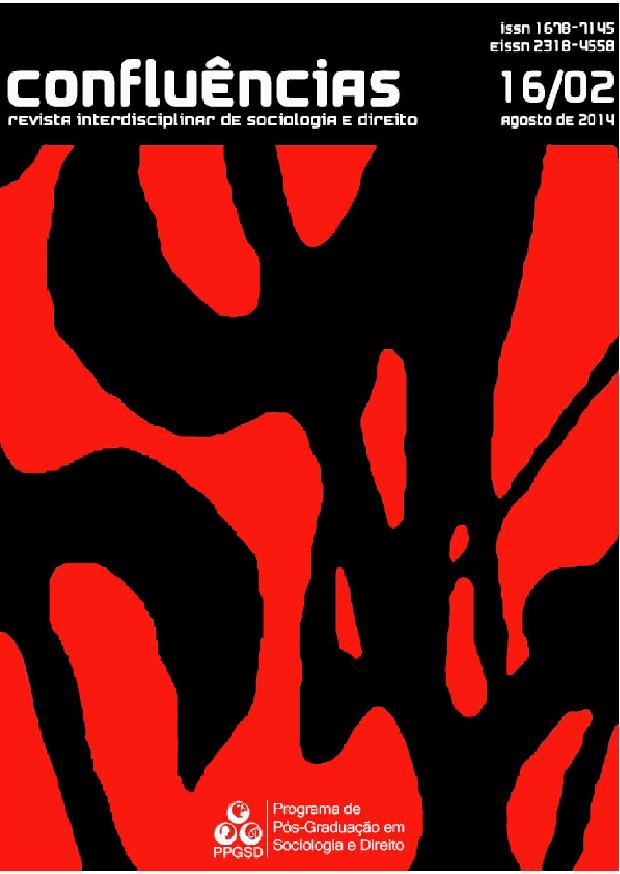A REDISTRIBUIÇÃO ATRAVÉS DO DIREITO: ALGUMAS DIFICULDADES
DOI:
https://doi.org/10.22409/conflu16i2.p396Abstract
For a discussion over redistribution and rights this article starts from a contingent question in the sensethat the law can serve to redistribute as well as it can reject it, no matter what we mean by redistribution.Assuming law’s instrumental character, we then elaborated some problems over the notion of redistributionin which its ambiguity can be illustrated. This discussion allows us to reverse any determinism,which is one of the important contributions of law’s critical movements. We believe that the questionabout law’s redistributive function of law can be phrased as it follows: if the law produced in a contextof domination can be used to fight against domination, especially within constitutional democracies,can the law of those democracies establish a distribution more consistent with the interests of the dominated?This question opens up to the last moment of our text on the objects of the (re)distributionDownloads
Download data is not yet available.
Downloads
How to Cite
Millard, E. A REDISTRIBUIÇÃO ATRAVÉS DO DIREITO: ALGUMAS DIFICULDADES. Confluências | Interdisciplinary Review of Sociology and Law, 16(2), 22-32. https://doi.org/10.22409/conflu16i2.p396
Issue
Section
Dossiê
License
The authors hold the copyright, with first publication rights granted to the journal, being the work simultaneously licensed under the Creative Commons Attribution Licence, which allows the work to be shared with acknowledgement of authorship and first publication in this journal.
The authors have authorization to separately purchase additional contracts of non-exclusive distribution of the work's version published in this journal (e.g.:publication in institutional repositories or as a book chapter), with acknowledgment of authorship and first publication in this journal.
The authors have permission and are encouraged to publish and disseminate their work online (e.g.:in institutional repositories or on their personal page), at any point - either before or during the editorial process, since it may generate productive changes, as well as increase the impact and citation of the published work.







